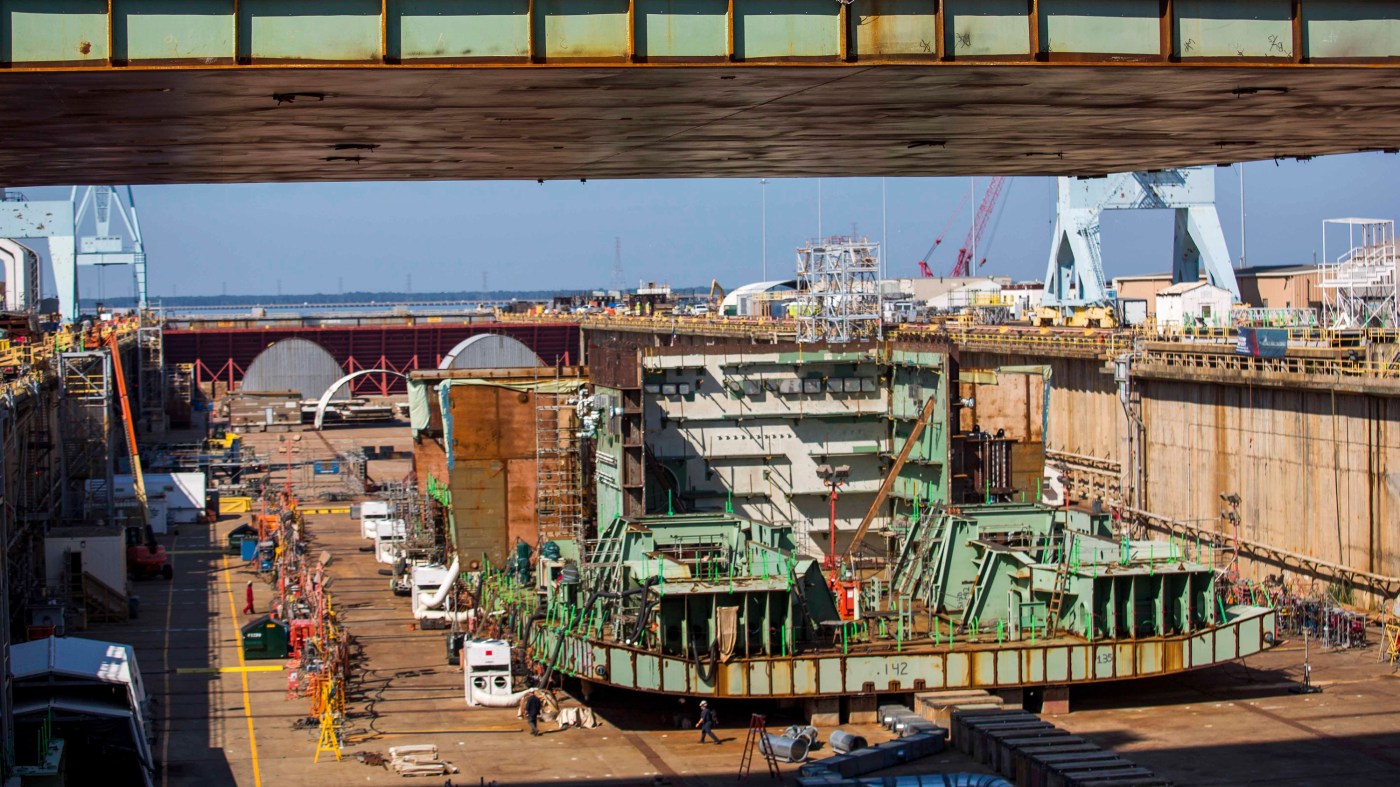
Editorial: Navy ship delays put national security at risk
Despite the shift toward unmanned aerial operations and cyberwarfare, naval power remains a central component of the United States’ national security strategy. The projection of American power over great distances depends on a robust Navy, something that gives comfort to our allies and should inspire fear in our enemies.
That strength is threatened, however, if building the 21st century Navy is beset by construction problems, as was confirmed last week in a rare public accounting of delays across a host of programs. This is a national concern, one that deserves the full attention of federal lawmakers, defense officials and contractors to see it addressed promptly.
Amid worries that two key Navy programs — Columbia-class ballistic missile submarines and Constellation-class frigates — were lagging behind schedule, Navy Secretary Carlos Del Toro ordered a comprehensive 45-day review in January to examine “the lingering effects of post-pandemic conditions on our shipbuilders and their suppliers.”
Released last week, that summary provided a detailed, and worrisome, assessment of military shipbuilding. According to Breaking Defense, the report found 12-16 month delays for the Columbia-class subs, 24-36 month delays for aspects of the Virginia-class subs, 36 month delays for the Constellation-class frigates, and 18-26 month delays for the new Enterprise aircraft carrier.
Underscoring the depth of the problems with military shipbuilding, Politico reported week that Navy officials instructed the contracting firms to not make presentations at the Sea-Air-Space Exposition, the Navy’s largest U.S. trade show.
Some issues are known and have been publicized. Begin with the pandemic, which created problems throughout the supply chain, some of which persist today. Politico’s reporting posits that the Navy’s penchant for changing ship designs even as construction is underway has introduced uncertainty into the process.
But there’s also a straightforward factor at play: Shipyards don’t have the workforce sufficient to deliver products on time. Del Toro told attendees of a suppliers conference in December that the industry will need 150,000 new qualified workers in the next 10 years.
The Pentagon has spent billions in recent years to modernize shipyards, though there is more to be done. The White House in October called for an additional $3.4 billion in funding for submarine shipbuilding to address ongoing delays. Congress has yet to act on that request.
The nation can hope that this brutal assessment of shipbuilding delays lights a fire under federal lawmakers. They must take seriously the risks posed by an overstretched and under-resourced Navy, which could well materialize as older ships are retired or removed from service for refueling.
The shipbuilding crisis is real and among the most profound national security threats facing this country. Getting things back on track will require considerable effort, and must begin immediately.
The Virginian-Pilot/Tribune News Service
Editorial cartoon by Steve Kelley (Creators Syndicate)


